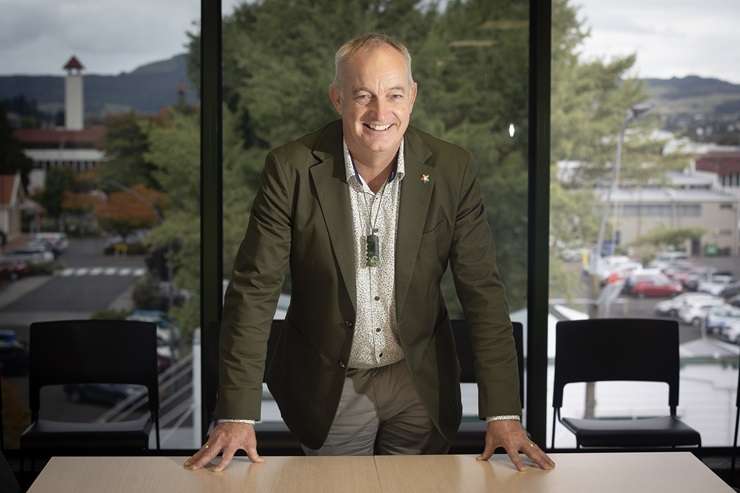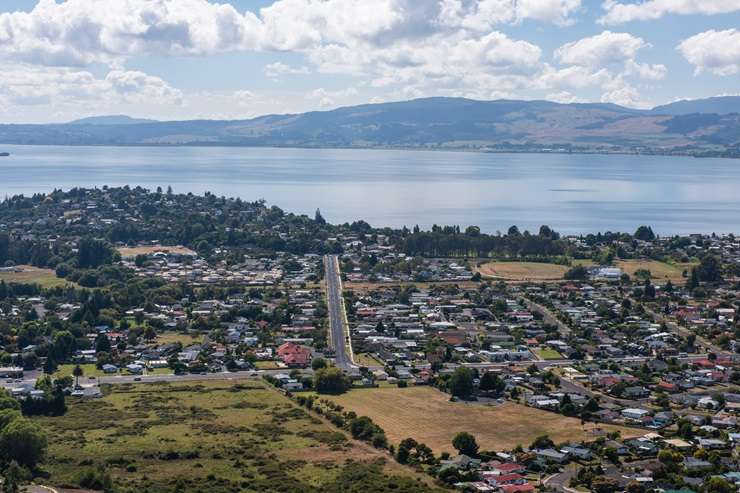Rotorua’s “misery mile” has derailed house price growth in the city, real estate agents have told OneRoof.
More than a dozen motels, mainly along Fenton Street, are used for emergency and social housing in the city, which reportedly led to a rise in crime, violence and intimidation that left locals feeling unsafe.
Professionals Rotorua owner Steve Lovegrove said: “It’s a little bit politically sensitive but my view as a real estate agent was that at the point that became public – when all this public housing and housing shortage and homelessness came up – we had been seeing migration out of the bigger cities but then the tap just started turning off.
Discover more:
Start your property search
- Tony Alexander: Making households suffer is only a means to an end, not the nasty goal itself
- 'Saw it in week one, bought it in week two': Aucklanders stump close to $9m for 'X-factor' home
- ‘Oh s***! I can’t do that’: Lots of choice, but money woes are thwarting buyer plans
“That cannot be ignored as a factor that has affected the desirability of people to own and pay for property in Rotorua, especially central Rotorua.”
The city saw a massive 84% rise in property values in the four years leading up to the Covid lockdowns, but in the four years after Covid, when other cities were seeing property values more than double, Rotorua’s average property value lifted only 13%, OneRoof data showed.
“What hit Rotorua is not the downturn in the market. What hurt Rotorua was the public imagery of homeless people and people living in motels. What happened there is it stopped the migration of people moving to Rotorua in its tracks. People were like ‘I don’t want to move there’,” Lovegrove said.

Professionals Rotorua principal Steve Lovegrove. “If we can just get past some of those negative things that have happened, that’s when we will see demand come to Rotorua." Photo / Andrew Warner
In 2022, residents and businesses were vocal about the rise in street violence and intimidation during an independent hearing considering an application to continue operating 13 motels in the city as emergency housing.
Lovegrove said the serious problems didn’t last too long after locals spoke out, but the perception of Rotorua as a problem city has lingered with out-of-town buyers. “There’s a lot of work to do to recover from that.”
He said it was a great place and believed that in time people would see it with all its potential again as it was centrally located, had a lot of outdoor activities, offered properties with lake views at a fraction of a price compared to other cities and also had hot pools to soak in.
“I cannot understand why Rotorua is not a little closer in terms of the Queenstown of the North Island because geographically – and its location to everything else – it’s amazing.
“If we can just get past some of those negative things that have happened, that’s when we will see demand come to Rotorua, when we can get that story right.”
Bayleys Rotorua branch manager Beth Millard said there was no doubt that the national publicity around the city’s motels being used as emergency accommodation and social housing had caused reputational damage and negatively impacted the property market.
“Those that went public needed to because that was the only way to bring it into the public eye and get a stop to it.”
The Government announced this week that it would end the long-term use of contracted emergency housing in Rotorua by the end of 2025.
“I love Rotorua, there’s nowhere else I want to live, and I feel like I’m constantly defending the city,” Millard told OneRoof.
She said a massive campaign was needed around the rebranding and promotion of Rotorua showing people what it had to offer.
“Our beautiful lakes, the Redwoods – we’ve got all these magnificent assets. We are not just boiling mud and tikis anymore and we need to re-promote our city. And not only that, but our central location – two-and-a-half hours to Auckland now and an hour and you are in Taupo and 45 minutes you are in Mount Maunganui.
“We’ve got all these beautiful assets, and we are just known for what happened to our city during Covid and then the hangover of that post-Covid and it’s sad because it’s not who we are.”
The misery motel mile was only one of several factors cited for Rotorua’s property growth failing to lift as high as other areas post-Covid and the agents also pointed to investors selling up some of the older rental stock due to the new heath home requirements and the overall downturn in the property market.

Tourist town: A view of Lake Rotorua and houses in the city. Photo / Getty Images
The Rotorua market had – unlike some other cities including Christchurch – recorded unprecedented growth in the four years leading to Covid with out-of-towners moving out of Auckland and to Rotorua for both the lifestyle and affordable housing. Investors also took advantage of the low interest rates and bought some of the cheaper housing.
However, Valocity senior research analyst Wayne Shum said once the healthy homes requirements were rolled out, some investors decided to cash up and benefit from the capital gain instead of shelling out a bundle on upgrading the property.
“You bought in January 2020 and then come mid-2021 you would have made a hefty gain; do you want to spend $40,000 cash.”
Being a tourist town, Shum said businesses was also hit hard by Covid so there was less money coming into the economy.
“It’s more of a confidence thing. If the tourism industry is not going well and you are local, you think well whatever I do is somewhat related to the tourism industry. It’s the overall confidence at the time.”
Rotorua Lakes Council district development general manager Jean-Paul Gaston said any reasons for what the city’s growth in property values had slumped would be speculation without proper analysis.
Gaston said the housing market was mirroring the national trend, although it was “bucking the trend” when it came to building new homes.
The city and in particularly the tourism sector had been hit hard as a result of Covid, he said, but was starting to bounce back.
“The return of international visitors has begun our recovery and we have had an extremely positive summer.”
- Click here to find properties for sale in Rotorua




















































































